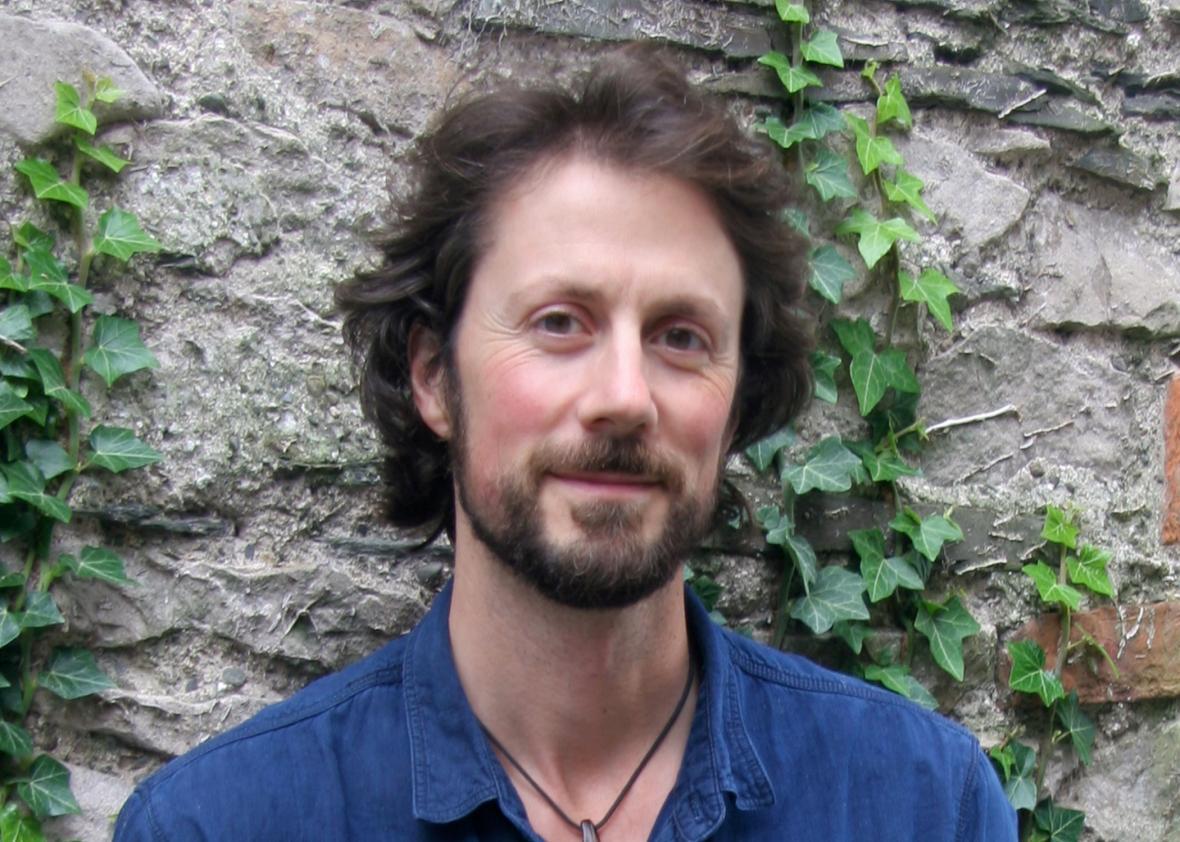Early in The Wake, Paul Kingsnorth’s widely and rightly praised novel of the Norman conquest, the narrator laments his losses. Once a privileged English landowner, Buccmaster has seen the French invaders destroy all that he owns and all that he loves. “Words are the only weapons I have left now, and no one would say I have ever been afraid to wield the weapons I have,” he declares.
Except that’s not what he says, not quite. Instead, Kingsnorth writes:
words now is left my only waepens and non wolde sae i has efer been afeart to wield what waepens i has.
Every word in the book—dialogue and narration alike—is written in this style, an internally consistent invented language that approximates Old English. Learning to make sense of it—to read as Buccmaster speaks—becomes a complex dance of empathy. On the one hand, the more comfortable we get with it, the better we get to know Buccmaster. On the other, its persistent strangeness is an ongoing reminder of his distance from us, and of the alienness of his world.
No mere gimmick, Kingsnorth’s archaisms encode his characters’ most dearly held beliefs. The Wake’s vocabulary is almost exclusively Germanic, and with good reason. A true Englishman (he would call himself “triewe anglisc”), Buccmaster refuses even to acknowledge the francophone impositions that later shaped Middle and modern English. His is the language of those who came before William the Conqueror ripped the land apart and stitched it together again. Speaking as he does becomes a way of pushing back against this invader and those who bowed before him. Though he sometimes brandishes his grandfather’s sword, words really are Buccmaster’s only weapons in his guerrilla campaign, because his insurgency is more linguistic than it is physical.
If Buccmaster’s language conveys his loathing for ingengas (foreigners), it also underscores his losses, in part through its limitations. That this book is readable at all is largely a consequence of its finite lexicon. Because Kingsnorth declines Latinate roots wherever possible, Buccmaster lives in a state of linguistic deprivation, every available word obliged to do the work of many. Take gan, which Buccmaster uses to mean “gone,” “lost,” “went,” and “departed,” sometimes in close proximity to one another: “all gan all was gan and so i gan i toc what i had and i gan away from my hus and land.” With each repetition, the word reaffirms the enormity of Buccmaster’s sorrows. To render this passage in conventional English would be to silence its expressive rhythm, capturing the meaning, but losing the feeling.
Truly understanding The Wake therefore entails taking on Buccmaster’s suffering, paring down the rich variety of your own language as you watch the French strip everything from him. Understanding him and empathizing with him are one and the same, a coin’s face and its obverse. It took me just about 50 pages to get a feel for it—50 pages before his syntax settled into my bones, before his voice came through clearly, before his heartbreak was mine. Though different readers will experience the book in different ways, I suspect I’m not alone in reaching that 50-page milestone. If you’re not at ease by this point, you’re unlikely to keep reading.
The trouble is that Buccmaster may not be worthy of the empathy we develop. Just as the book approaches that crucial 50-page mark, the increasingly familiar Buccmaster does something unforgivable. Angry that his sons have been recruited for a fyrd (conscript army) while he has been passed over, he lashes out at his beloved wife, Odelyn. As he repeatedly strikes her, she falls, hitting her head on a heavy stone, “and she is on the flor hwinan lic a cat in a water pael all blud and spit.” This is a violent book, but few of its images are more shocking than this one of Odelyn, bleeding, sobbing, and prone.
It’s no accident, I think, that Kingsnorth confronts us with this image at the very moment when his novel begins to seem most accessible. Finally pushing through the book’s stylistic difficulty, we find ourselves mired in the fen of emotional difficulty. It’s simple enough by this point to understand why Buccmaster does what he does. He’s desperate to regain control of his limited domain, a need that prefigures his every action in the pages that follow. Despite that, we’re repulsed by the violence of the act, and troubled by a sexual politics so far from our own. Now that his language pulls us in, the things he describes make us want to pull away.
Historical fictions often entice with the very things they invite us to critique. In Mad Men, especially its early seasons, bad behavior delights: Don Draper loses some of his charm when he stops smoking quite so much, refrains from cheating quite so often. To some extent, this narrative sleight of hand is possible because such stories don’t make their elsewhens strange enough. In an explanatory note that he appends to The Wake, Kingsnorth argues that the problem is partially linguistic. Claiming that he doesn’t “get on with historical novels written in contemporary language,” he writes, “Our assumptions, our politics, our worldview, our attitudes—all are implicit in our words, and what we do with them.” Forcing us to learn a new way of reading, he slowly makes the other familiar without sacrificing its otherness. And in doing so he leaves us open to still starker forms of alienation.
The Wake’s triumph, then, is also its greatest challenge, the cultivation of an uneasy empathy. We’re not quite meant to enjoy its 11th-century England. While Kingsnorth renders a time and place worth exploring, we’d never want to live there, even under the best of circumstances. Buccmaster, likewise, isn’t some appealing antihero. To the extent that he’s a hero at all, he’s an ugly one, and he claws his way out of an ugly time. His tragedies are numerous. Ours is that we understand them.
